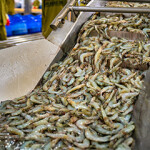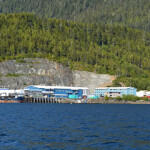Hawaii Seafood Council responds to alleged labor abuse in longline fleet
The Hawaii Seafood Council and Honolulu Fish Auction have formed a task force and in response to a recent Associated Press story alleging the use of forced labor, human trafficking and poor working conditions in Hawaii’s longline fleet.
In a joint statement on Sunday, 18 September, The council and auction house announced the formation of a task force composed of vessel owners, suppliers and its own representatives “to assess the problem and work on solutions to protect the welfare of the crewmen.”
Its first task is “answering whether forced labor is occurring on individual vessels,” according to the statement.
“This fishery has proven itself over the years to be responsive and an industry leader in meeting the challenges arising from new information about fishery impacts on fish populations and protected species,” Hawaii Seafood Council Director and task force member John Kaneko said. “The allegations of labor abuses present a serious and new challenge, and the industry is rallying to respond quickly. I am confident that through this process we will ferret out any vessel from the fleet that is involved in forced labor, labor abuse or substandard working conditions and treatment of the crew.”
According to the announcement, the task force met with Hawaii-based seafood wholesalers and longline vessel owners to inform them about the allegations made in the AP article. It also met with retailers and wholesale seafood companies to understand their criteria for evaluating and assessing fairness in labor practices. The task force also hired a consultant with expertise in evaluating labor practices in supply chains.
“The industry takes the AP report seriously, is actively assessing the situation and is committed to making certain that if found, forced labor and labor abuse is eliminated from the fishing industry,” said Jim Cook, co-owner of Hawaii-based Pacific Ocean Producers and member of the Hawaii Seafood Council. “The fishing industry has taken immediate action since 8 September to quickly put into place a system of checks and balances to protect the foreign crewmen and to make certain that no fishing vessels in the Hawaii fleet are using forced labor or abusing the crew.”
Also in the past week, The U.S. Customs and Border Patrol met twice with foreign crewmen serving onboard Hawaiian fishing vessels, requiring boat owners or captains not be present. Officers informed the workers about the allegations of force labor and offered them a safe forum to make complaints about their condition or treatment.
The task force said in its announcement that it is “seeking a public statement from the US Custom and Border Patrol on their activities and findings regarding the allegations of forced labor in the fleet. The group is seeking [their] cooperation because of the agency’s central role in inspecting travel documents and monitoring the arrival, working situation and departure of foreign crewmen working on contract on Hawaii longline vessels.”
In the meantime, the task force has initiated an effort to work closer with U.S. Custom and Border Patrol and foreign consulates and embassies to establish a better process to ensure the welfare and fair treatment of foreign workers. It is also developing a vessel inspection checklist to assess the working conditions on the vessels, a universal crew contract available in the native languages of the crewmen and a separate checklist for interviewing the crewmen to “verify the findings of the inspection of crew documents and vessel conditions,” based on the United Nations International Labor Office definition of forced labor.
Beginning 1 October, the Honolulu Fish Auction, which receives and auctions the majority of longline-caught fish in Hawaii, will deny services to vessels that are unable to demonstrate that forced labor is not being used based on the review of the universal crew contracts.
“The auction has taken a zero tolerance stance for fishing vessels involved in forced labor,” said Michael Goto, a member of the task force and representative of the United Fishing Agency, which runs the fish auction.






Share